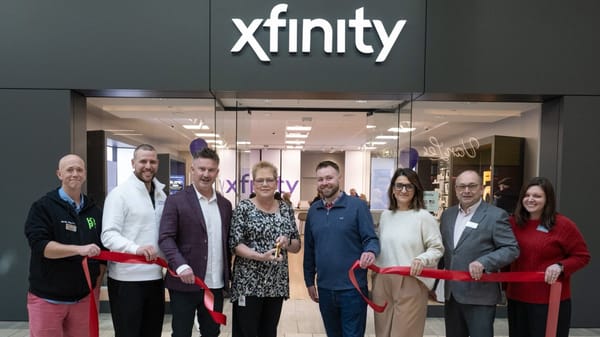Burlington Schools to Update Policies and Handbook Amid Parent Concerns, Court Ruling
Burlington Public Schools consider new rules for student surveys and update the high school handbook with clearer policies and opt-out options.

Burlington Public Schools is soon to adopt new policies regarding non-educational surveys, as well as an updated high school handbook.
The district's administration of the Youth Risk Behavior Survey (YRBS) to middle- and high-schoolers this spring prompted concern from some parents – both due to content some believed to be inappropriate for children as young as 11, and because some children whose parents opted them out of taking the survey were given the survey anyway. (This week, the U.S. Department of Education announced an investigation into the survey's administration; read the superintendent's response.)
In response to this situation, Superintendent Dr. Eric Conti brought a policy before the School Committee for a first reading at their August 19 meeting. The policy, created by the district's labor attorney, Darren Klein, and reviewed by the school's policy subcommittee, has two parts – one which addresses the YRBS and another that encompasses all other non-educational surveys.
The policy proposes that the YRBS be reviewed by the district's Wellness Committee who, upon approval, will pass it along to the School Committee with its recommendations. The School Committee will then determine whether or not the district will participate in the survey and, if so, ensure the suitability of the questions. Opportunities for public input will be provided during the process, as well.
Furthermore, the survey used in the 2023 and 2025 administrations will no longer be used; instead, the district will employ the survey used by the Centers for Disease Control and Prevention or the Massachusetts Department of Public Health, and the questions will be available on the town's website.
In fact, said Dr. Conti, he'd like to move toward posting a list of all screenings and surveys used by the district throughout the year on the school website, with links to their content and information about where each originates (state mandate, local option, etc.).
In this initial version of the policy, which has not yet been approved by the School Committee, the Committee would decide on a case-by-case basis whether the survey should be opt-in or opt-out. Conti described this as a way to give the School Committee the flexibility to choose one or the other based on the content of the survey. In either case, families would be notified 30 days in advance of the survey via multiple means of communication.
Committee Member, Jeremy Brooks, who has been an outspoken proponent of requiring an opt-in for this survey, argued for a definitive policy one way or the other in order to remove ambiguity for parents. Member Christine Monaco countered that in order to pass with four votes, the policy needs to leave the decision of whether a survey is opt-in or opt-out up to the discretion of the Committee each time.
For other non-educational surveys and screenings – which includes state-mandated screenings such as vision and hearing and district assessments like the Wayfinder socioemotional learning program screener – the proposed policy would require 15 days' notice to parents as well as multiple forms of communication to allow students to be opted out.
Committee Members agreed to email Dr. Conti with their feedback on the survey policy, which will be read for a second time on September 9 and voted on by the Committee. In order to pass, it will need votes from four out of five of the School Committee members.
The high school handbook is also getting an update, with special attention to clarifying the grading, academic honesty, and attendance policy, making core values and learner expectations explicit, and establishing student competency in the absence of MCAS as a graduation requirement.
It also features a new curriculum opt-out policy in light of the June 27th Supreme Court decision in the case of Mahmoud v. Taylor, which allows families to opt their children out of curricular content for sincerely held religious beliefs. Conti said he's working with district and school administrators on procedures that are clearly communicated to families regarding how the process works.
"I don't want the district to be in the business of questioning someone's sincerely held religious belief," said Conti, adding that instead the district will focus on process. "Are we following the right process? Is the request narrow enough? And how are we as a district responding with an alternative?"
The opt-out would be applicable to whole-class content and specific to individual lessons rather than a global opt-out. However, Conti said, the district will need to provide a way for parents to know when such lessons are coming up.
"We really want the responsibility on opting out to be on the parent, and if that's the case, the responsibility on identifying what we're actually covering and teaching is on the district and we need to be clear. I'm not sure everything we do is perfectly clear right now, so we may need to accept less specific requests initially, but the goal should be to clarify what we're doing and then to ask parents to clarify what their requests are."
Students who are opted out of a lesson will need to be provided with an alternative activity to complete during that time, and their grades would not be negatively impacted by not participating in the lesson.
The handbook, like the survey policy, will be reviewed once more and voted on by the School Committee at their September 9 meeting.





